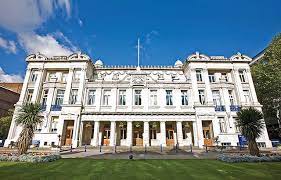Queen Mary University of London: New report reveals the harsh reality of life for the UK’s migrant communities
The report, Between a Rock and a Hard Place, contradicts much of the current media coverage of immigration in the UK. It comes at a time when MPs have voted to support a new immigration bill that makes arriving in the UK without permission a criminal offence.
The report shows that migrant communities are grappling with, and still enduring systemic racism, the hostile environment, border controls, poverty, fear and suspicion of authorities and were left to their own devices during recent lockdowns.
Mental health crisis
The pandemic has brought to the surface existing social, economic and health inequalities. The findings also show that migrants’ mental health has been severely impacted during the pandemic, with many feeling triggered and desperate, as they are unable to work or study while their claim is being processed. It has been reported that up to a dozen asylum seekers have taken their own lives in the UK over recent months, and as the report highlights, GPs have also been denying vaccines to undocumented people.
According to the report, actions taken by authorities do not address the inequality and inequity brought on by hostile environment policies, the new Immigration Plan, the Police, Crime and Sentencing Bill, the Domestic Abuse Bill in conjunction with Brexit.
Based on interviews with refugees and asylum seekers, the report provides vivid accounts of the lives of people from marginalised communities. It also documents how easy it is to fall through the cracks of the system and become deportable.
Scare tactics
Many respondents revealed the practical difficulties of living on the periphery of society, with many local shops not accepting the Aspen card, a card used to buy essentials, meaning that many were unable to buy necessities. Others said that they were so poor that they could not afford PPE or sanitary products.
The report also showed that the words ‘Home Office’ were used as a ‘way of scaring people into not asking questions’ in outsourced accommodation and there is prevalent racism which has prevented many from being able to access medical help when they were ill with Covid-19.
The report makes a number of recommendations including giving immigrants and those with precarious status in England voting rights like in Scotland and Wales. The authors argue that this will ensure that migrant communities are represented when it comes to policy development. The report also recommends that people working for government authorities and institutions should be given training so that they understand the barriers faced by marginalised communities. It is argued that at present, racism and xenophobia is embedded in the current system.
Listening to experiences
Penny Wangari-Jones, Director at the Racial Justice Network said: “This report comes from listening and acting upon community concerns. It highlights resilience, resourcefulness of marginalised communities but also the manufactured structural barriers and inequality that made the situation much worse during the pandemic. The authorities, decision and policy makers as well as the general public should take heed.”
Tesfalem Yemane, Eritrean community and doctoral researcher at the University of Leeds said: “The effects of colonial legacies will continue to exist and thrive under the hostile environment policies and we need resist those by coming together and then showing our solidarity to our fellow migrants.”
Laura Loyola-Hernández, University of Leeds, trustee at the Racial Justice Network added: “The Covid-19 pandemic surfaced and shone a light to health, socio-economic and other inequalities on a regional, national and global scale. It is clear that with or without local or national support from authorities, migrant communities stuck between a rock and a hard place, have come together to build a sense of solidarity and mutual support before, during and after the pandemic.”

